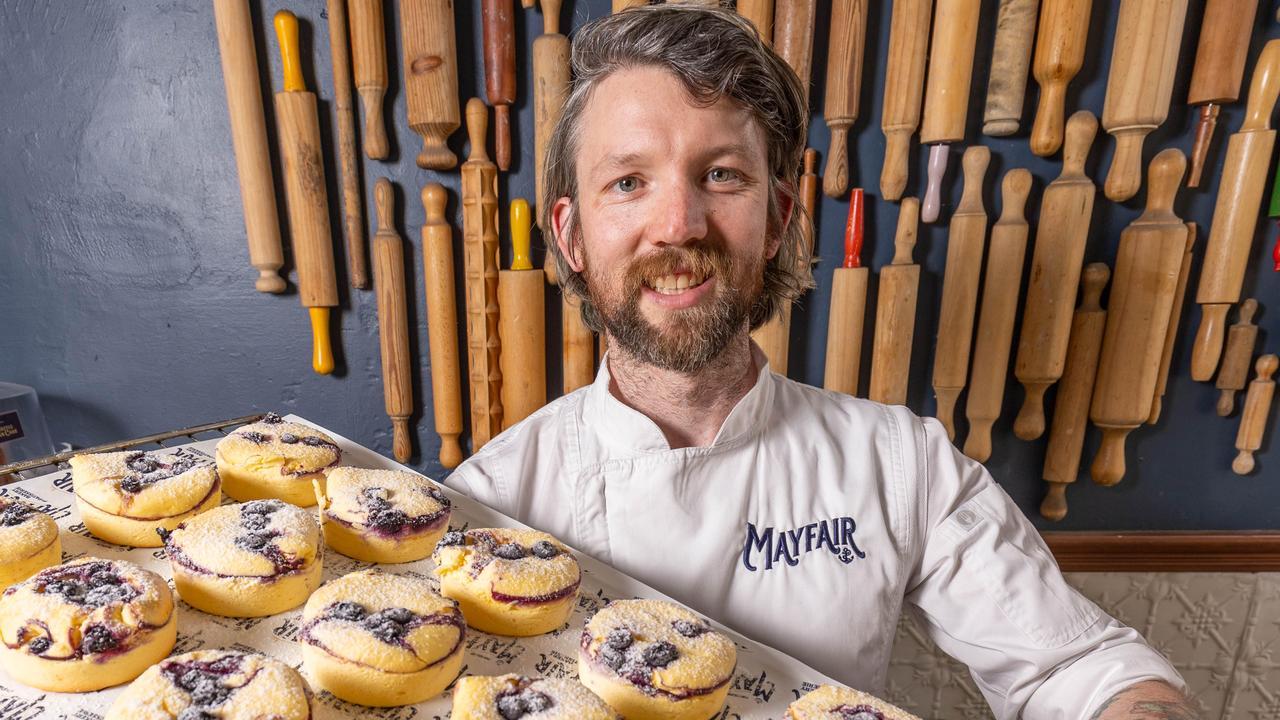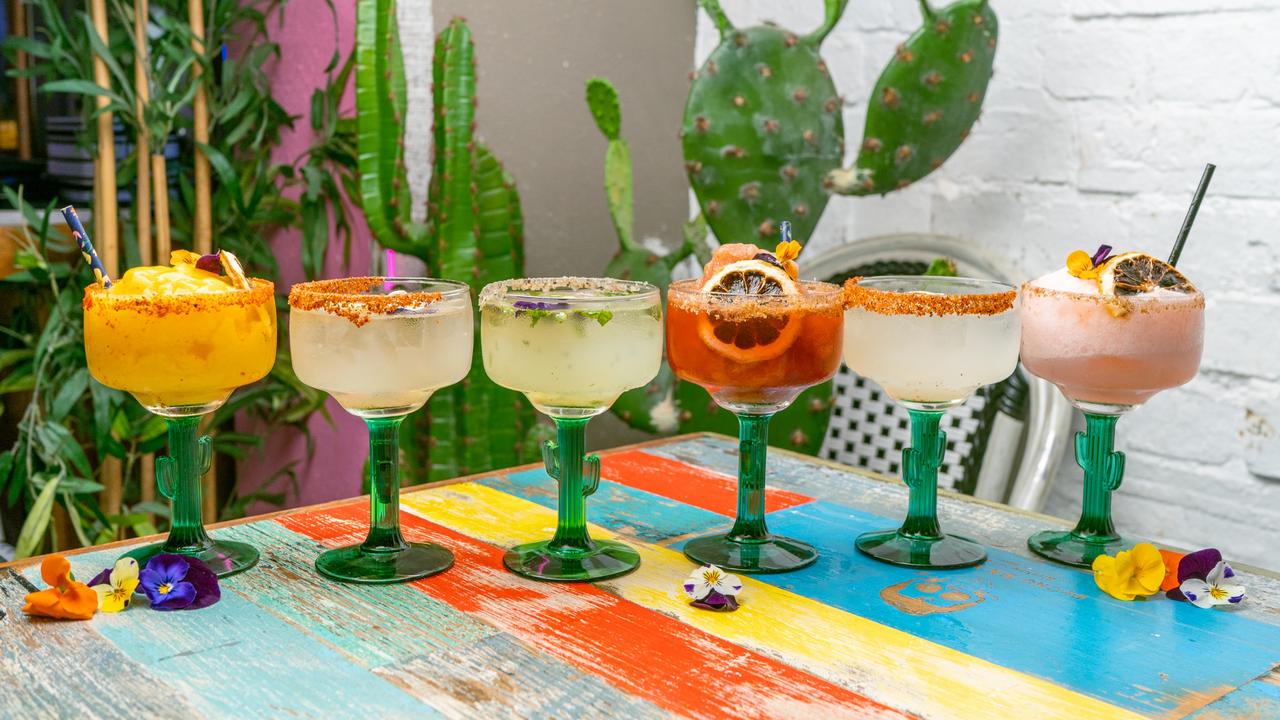Four months since the passing of his dad, d’Arry, Chester Osborn of d’Arenberg speaks about his relationship with his father
Four months after d’Arry Osborn’s death, his son, Chester Osborn, speaks about their relationship, what he misses most and how his dad “isn’t really dead”.

Food & Wine
Don't miss out on the headlines from Food & Wine. Followed categories will be added to My News.
Four months have passed since Chester Osborn said goodbye to his father and d’Arenberg patriarch Francis “d’Arry” Osborn. And there’s one thing he misses most about his dad: “the conversations”.
“Dad could talk and talk and talk,” says Chester, the chief winemaker and viticulturalist of his family’s McLaren Vale winery.
“I miss sharing ideas with him. Seeing him interact with the kids was always great; they loved him to death – they loved talking to him. He had a lot of stories.”
Francis, known affectionately throughout the McLaren Vale community and greater wine industry as “d’Arry” – short for his middle name d’Arenberg; his mother’s maiden name – passed away on December 16, 2022. He was 10 days shy of his 96th birthday.
He was described as the “grandfather of McLaren Vale”, “a true statesman of Australian wine” and a “ray of sunshine”. Friends and community members spoke fondly of their interactions with d’Arry, at work, at the post office, at the local bank; his penny pinching tendencies and habitual checking of the winery water meter.
Now, d’Arry’s son and generational face of d’Arenberg, Chester, speaks his own words about his father, their relationship and how his dad “isn’t really dead”.
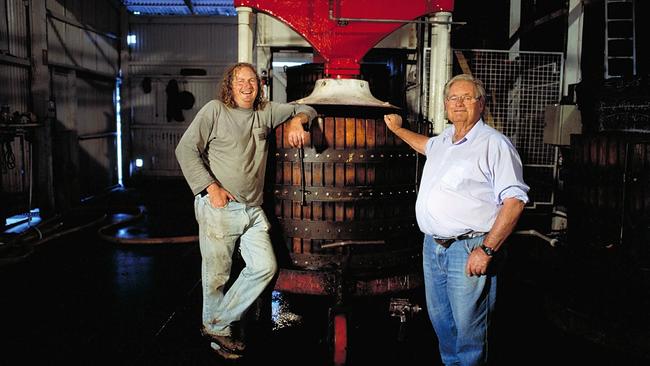
We still love Dad
“You can argue that you’re not dead, really, until you’re forgotten,” Chester says.
“Love is a really interesting force that can’t be measured, but … it’s actually one of the strongest forces because if you travel to the other side of the universe or everything that you know, and we’re in love, you would still be in love. That force is still there.
“Dad had a good innings – 95 (years of age), so that’s pretty good. He was very good actually up until the last six months, then he started falling off the perch. It’s amazing how quickly it happens at the end.
“His memory started going, his body started going, and both of them went faster and faster until the last stages. It’s what, if we’re lucky, we’ll all go through. I say ‘if we’re lucky’ because otherwise, it’s something else that’ll get you.”
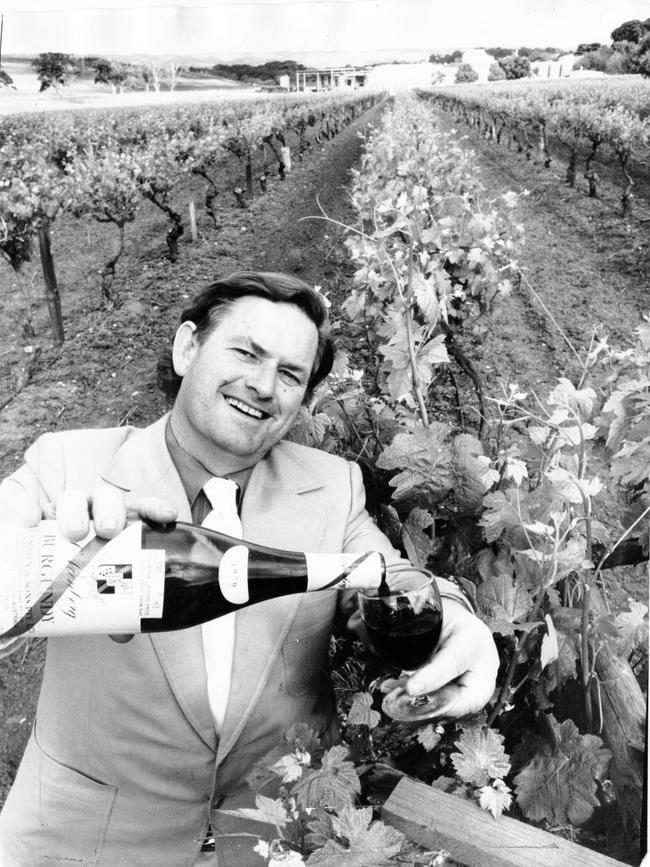
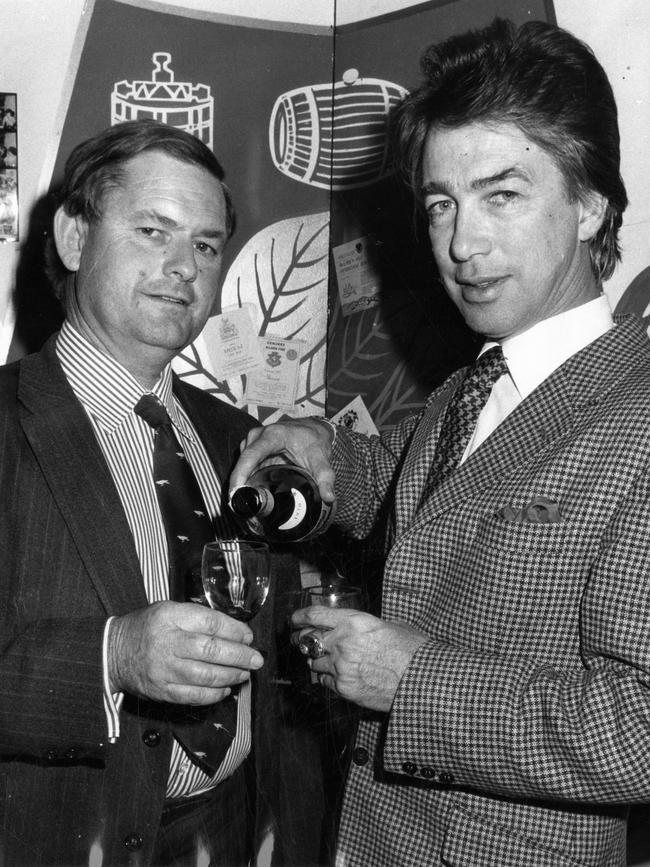
A bond is formed
“I grew up with the winery and the vineyard and dad was very busy back in the ’60s. I was born in ’62 – came out purple actually, the cord was wrapped around my neck.
“My father was a pretty busy person and on weekends – Sundays – he’d go play golf. I started going around the golf course with him – it was Victor Harbor golf course he would go down – and I would take a friend and do a bit of caddying or go looking for golf balls.
“After a couple of years of following him around, I caught a fish in the Onkaparinga Gorge – a 2lb rainbow trout, and Dad thought, ‘wow that’s pretty amazing, maybe we’ll go fishing’. So he bought me a fishing rod for my birthday and it was a surf rod, and Onkparinga Gorge is like a creek. So I’ve got this surf rod with a side-casting reel, an old-fashioned one at that … anyway he realised it was wrong and got shorter rods with egg beaters, then he gave up going to golf and we went fishing, every weekend, both days usually.
“Sometimes during the week we’d go down to the beaches down here. When he got a boat, I was about 13, we started going out – depending where the weather was, we’d go down the Coorong or we’d go down here, down Victor or wherever. It was always really good fishing. He fished right up to 93 years old I reckon.
“We used to make a lot of things … make go-karts out of prams and all sorts of things. We used to go shooting pigeons, trapping rabbits, which of course you can’t do anymore. It was farm life: building haystack houses, cooking – we did a lot of cooking. Dad had Mrs. Beeton’s Cookery book in his collection … and an old wood stove – no thermometer, nothing electrical. Dad and mum both loved cooking.”
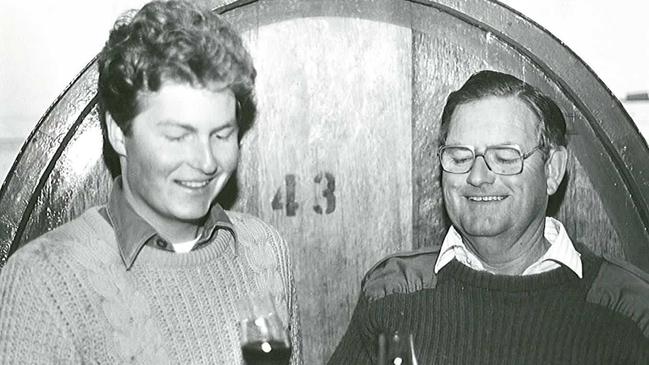
Life on the vineyard
“I started working here from age seven, and was getting paid 10c an hour for picking grapes. I don’t think I was worth that much; I think I ate more grapes than what made its way in the bucket. I got a wage rise to 30c an hour when I was eight – I thought that was pretty good money and I better work pretty hard for that. I worked most of the school holidays through all of my schooling; I enjoyed it a lot.
“In the ’80s, Dad still ran the vineyard – I decided when picking was, but he was still running the irrigation and things.
“We had the vine pull scheme in ’85 of course … we didn’t pull anything out but we lost a few growers of grenache. I put an ad in the Grapegrower and Winemaker magazine in 1992 offering $1000 a tonne for small berry dry grown Grenache, which was quite a lot of money in those days, at least double what the price was. I got 20 or 30 growers over the next few years of derelict vines, where growers got the vine pull and didn’t pull out the vines. They were just bush vines, so why waste the money to pull them out, just let them die.
“It’s really hard to kill a grenache vine. So we started making really low-yielding, but interesting grenache, for a wine we called the Derelict Vineyard Grenache. That taught me something about viticulture – minimal input I suppose is what you’d call it. These grenache vines were making amazing Grenache; great acidity, great tannins, great length, and so much zest and earth.
“I told my father that we’ve gotta change our viticulture – we’re going to stop cultivating, we’re going to stop herbicide, stop fertiliser and irrigation where we can. And he said, ‘we’ll we better sell them now before you kill them all!’
“I introduced foot treading, and he thought that was silly. Older people don’t like change, and so anything that was change he’d go, ‘oh I dunno if that’s a good idea’. But I’d always go to him with a cost/benefit analysis – the reason for it – and he’d listen and then go, ‘oh I dunno if you’re right, but I’ve gotta go anyway’, and he’d go off and I’d do it anyway.
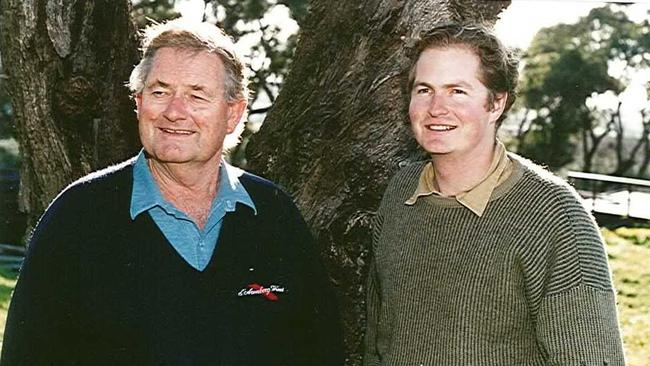
Cube controversy
“The d’Arenberg Cube of course was quite a complex thing. In late 2003 I showed them (the board) a model – a half-metre high of the d’Arenberg Cube, exactly as it is, and dad looked at it and his brother, and they thought I was crazy.
“Gradually I did the cost-benefit analysis and it was pretty good actually: if we increased visitation by 2.5 times, we paid for it in 6.5 years. We actually got more like five-six times (the visitors), but of course they didn’t all spend as much, but we charge as they come in now so in balance it worked out all right, and it was huge for our direct sales during Covid.
“One day Dad and I were in the carpark, we (the Cube) had been open for six months and we were walking and dad suddenly stopped and looked at me and put his hand out and said, ‘take my hand, take my hand!’ And I’m thinking he’s going to fall over or something, and he’s shaking my hand hard and says, ‘Congratulations! Look at all these cars!’ I didn’t have the heart to tell him that half of them were employees!”

A legacy
“He started the label – it was Bundarra Vineyards by F.E. Osborn & Sons before, and then he introduced the name. d’Arenberg is his middle name; his mother’s maiden name. Now my daughters’ middle name is d’Arenberg. Dad had a lot of pride in what he did, in the industry; he ran the industry to a large degree.
“He never raised his voice to me ever, and … he believed in me, and we had a great working relationship. We shared an office and he would go through the mail all the time – of course, he’d go collect the mail and talk to people for an hour down there, then come back and go through the mail – and he’d add up all the invoices and add up all the cheques, and it was a good day if the cheques came to more than the invoices.
“Of course electronic transfers started to happen and there weren’t as many cheques and he started having all these ‘bad days’!
“He was still checking the water meter until the last 5-10 years of his life; still did the banking right up to the last few years of his life; the mail to the last year of his life. He was still driving right up until six months before he died – yeah that was dangerous!”
“The house where he was brought up, which is right next door, we are going to turn into offices and there’ll be rooms with legacy items – a shrine to him I guess you could call it.
“His legacy is d’Arenberg, as a whole.”

Learn more about d’Arenberg over a rare tasting experience at the Decades of d’Arry with Chester event during Tasting Australia. It’s on Friday, May 5 – tickets $215 at tastingaustralia.com.au


